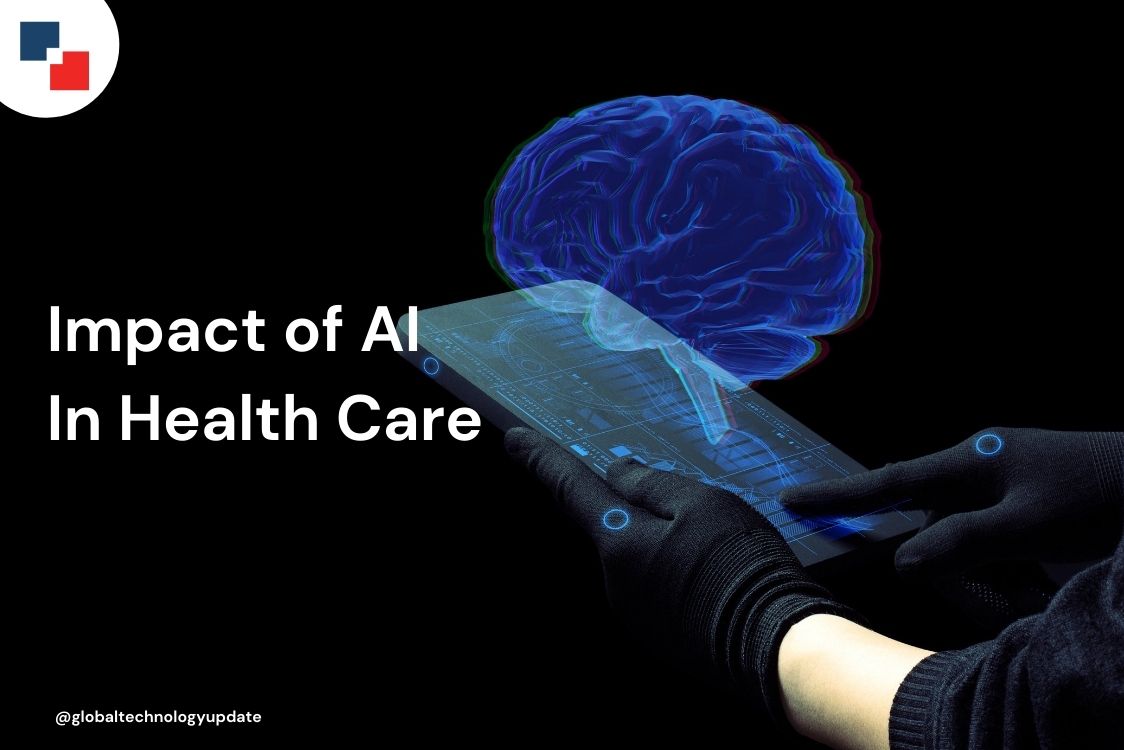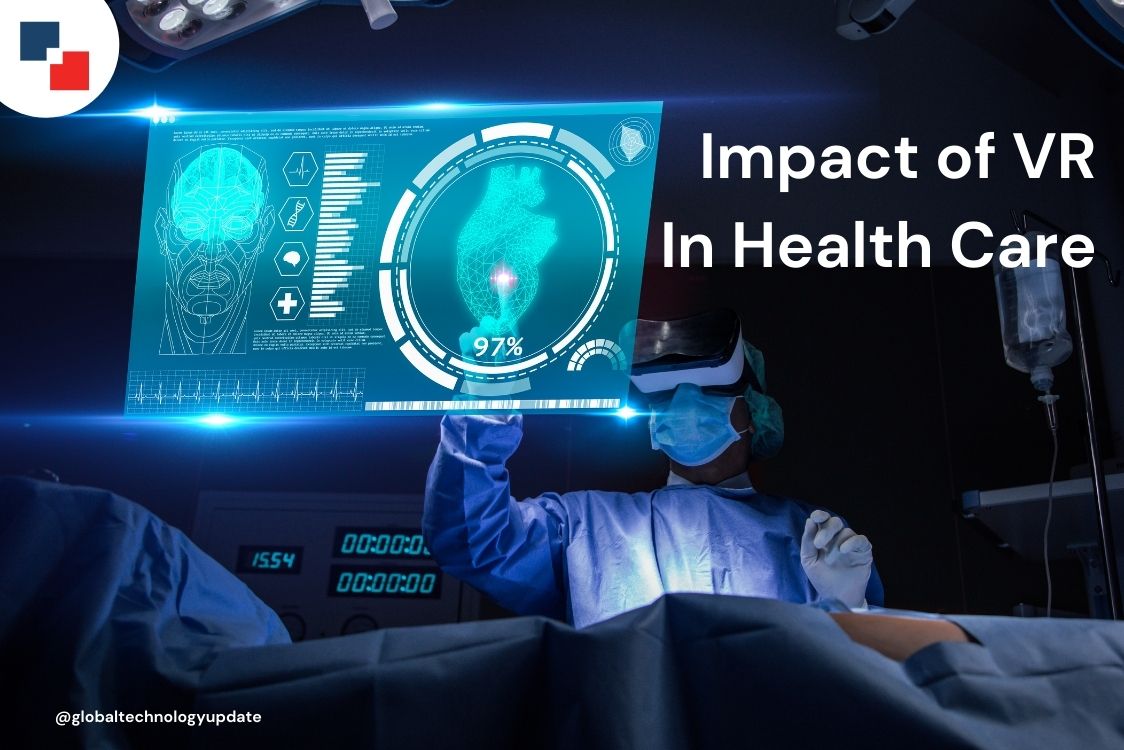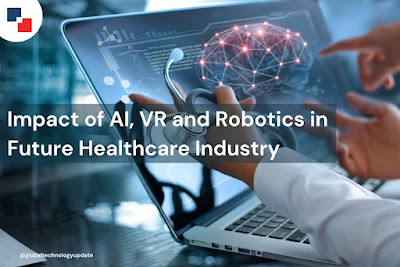AI, VR, and Robotics: The Future of Healthcare Industry
After COVID-19, we continuously face some health issues like the recently added new name Omicron…! As a result of all of the current health challenges, healthcare industries must upgrade their approaches. Recently added technology such as AI, VR, and Robotics can be beneficial to the healthcare business and have the potential to influence the industry’s future. Let’s look at how AI, VR, and Robotics are affecting health.
COVID-19 produced severe challenges for healthcare systems worldwide, altering established operational practices, disrupting the medical supply chain, and exposing crucial supply shortages across the value chain. The pandemic has hastened the use of virtual care in the health business, allowing for a digital care transition.
In opposed to other industries, healthcare is not a straightforward cut. Traditional medicine, medical professionals, diseases, patients, behaviors, and systematic concerns are just a few of the many aspects of this complicated issue. It is not an easy task to bring innovations and emerging technology to handle all or a few of these features.
The future is here. Artificial Intelligence (AI), Virtual Reality, and Robotics may be able to fill the gap. You can see the overwhelming realities, such as the demand on healthcare systems caused by an aging population. As a result, we do not have enough workers in healthcare to offer the level of care that patients require.
AI, VR, and robotics are advancing across the healthcare industry, from genetic testing and robotic surgery to cancer research and data collection.
In dermatology, AI is already being applied in practice, with medical practitioners using an experimental mobile version of it to identify skin cancer. Virtual Reality solutions allow medical professionals and patients to interact with simulated settings designed for medical education, pain management, or rehabilitation.
Let’s learn this technology impacts one by one.
Impact of AI in Healthcare
Artificial intelligence (AI) is increasingly used in healthcare, as it becomes more prevalent in modern business and daily life. The application of artificial intelligence in healthcare has the potential to help healthcare providers with various elements of patient care and administrative tasks.

AI is still in its early stages, and its long-term effects are unknown. Future AI uses in healthcare delivery, innovation, and how each of us thinks about our health could be game-changing. We can see a future in which population-level data from wearables and implants transforms our understanding of human biology and medicine, allowing for personalized and real-time treatment for everyone.
The majority of AI and healthcare technologies are highly relevant to the healthcare profession, however, the strategies they assist can differ greatly. While some publications on artificial intelligence in healthcare claim that AI can perform just as well as or better than humans at specific processes, such as disease diagnosis, it will be a long time before AI in healthcare replaces people for a broad range of medical jobs.
Virtual Health Assistant
Virtual Health Assistants (VHA) can assist patients in a variety of ways. For example, by sending reminders, VHA can assist dementia sufferers in staying on track with their prescribed meds. It can also use data to monitor patients, allow doctors to communicate with patients and pharmacists to remind them of medication refills and pickups, and even prescribe preventive health exams.
BOTs for Healthcare
Bots in healthcare exist largely to engage patients. Healthcare bots, which can be found in mobile messaging apps, can assist patients rapidly and in real-time by delivering a message. Health chatbots can answer health-related questions and even assist patients with medication management by offering information on medication types and suggested doses.
After discussing the role of AI in healthcare, let’s learn how AI benefits to Healthcare Industry.
Benefits of AI in Healthcare
AI is advancing healthcare treatments by enhancing treatment plan organization, evaluating data to generate better treatment plans, and monitoring therapies.
Patients can get answers in real-time with virtual assistants. Patients can ask medical questions and get answers, get more information and reminders about taking prescriptions, submit information to doctors, and get other medical assistance.
AI has the potential to enhance outcomes by 30- 40% while reducing treatment costs by up to 50%.
Another advantage of AI in healthcare is the capacity to create treatment regimens. Doctors can now search a database, such as Modernizing Medicine, which is used by a medical assistant to collect patient information, record diagnoses, order tests, and medicines, and create billing information.
The most difficult barrier for AI in healthcare is assuring their adoption in daily clinical practice, not whether the technologies will be capable enough to be useful. Over time, therapists may be drawn to tasks that need specialized human abilities, such as those requiring the highest level of cognitive function. Perhaps the only healthcare providers who will miss out on AI’s full promise in healthcare are those who refuse to collaborate with it.
Impact of VR in Healthcare
Virtual Reality is destined to revolutionize the healthcare industry. Visualize has created a variety of VR experiences in collaboration with some of the largest brands in the medical and pharmaceutical industries. We’ve seen a significant surge in the use of VR in the healthcare industry, and we’re still interested and impressed by the various applications our clients are demanding.

The global healthcare VR market is expected to be worth $336.9 million in 2020. It is expected to increase at a 30.7% CAGR and reach $2.2 billion by 2024. 82% of professionals feel that virtual reality provides a simple alternative for medical students and working healthcare professionals to access and understand knowledge. 62% of patients would welcome virtual reality healthcare services as an alternative to traditional healthcare.
Applications of VR in Healthcare
We’ll go through some of the ways Virtual Reality is being utilized to train and support healthcare workers, as well as to alter lives and heal patients, in the below.
1. For Medical Education & Training
Medical students and new healthcare workers benefit from virtual reality for more effective theoretical learning. Learners can explore 3D medical models in-depth, which physical models cannot replicate, or learn to speak with AI-controlled virtual patients, whose attitude and behavior can be easily adjusted for varied learning goals, using VR.
VR software designed exclusively for practical medical training assists medical students graduates and healthcare workers in gaining hands-on experience in a risk-free environment. This type of healthcare VR enables the simulation of events that would be difficult, unsafe, or expensive to replicate in real life.
2. For Surgery
VR helps surgeons eliminate practical skill-shortage faster by allowing them to execute various sorts of mock surgeries in virtual space. Surgeons can become skilled specialists without the utilization of costly one-time-use mannequins.
3. For Pain Management
The pain treatment of VR apps serves to ease pain or excessive discomfort by efficiently diverting a patient’s attention. This type of VR helps to reduce the use of potentially harmful medicines while also lowering healthcare costs.
4. For Rehabilitation
By transferring rehabilitative activities into the virtual domain, VR transforms patients’ therapy sessions into a gamified experience that inspires them to strive for greater results through virtual goals and achievements. Instead of a real therapist, software’s built-in AI can provide thorough advice and encouraging support, allowing for less expensive and more time-flexible personalized therapy.
5. For Physical Therapy
Virtual physical therapy may provide patients with a variety of activities, ranging from general orthopedic surgery to injury recovery. The exercises can also be tailored to certain age groups, assisting children in developing motor skills and older patients in maintaining their agility. Special lessons can also be designed for those who are learning to use a cane or a prosthetic limb.
Benefits of VR in Healthcare
Virtual reality has the power to revolutionize the healthcare industry. Here’s how:
- Hands-on experience in medical education in real-time
- Better patient education
- Assists patients in dealing with stress
- Improved medical imaging
- More rapid rehabilitation



Comments
Post a Comment